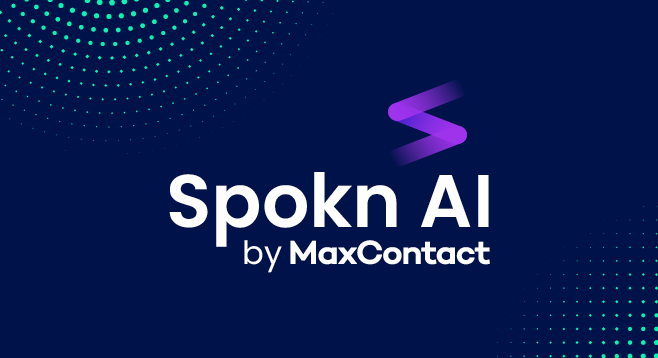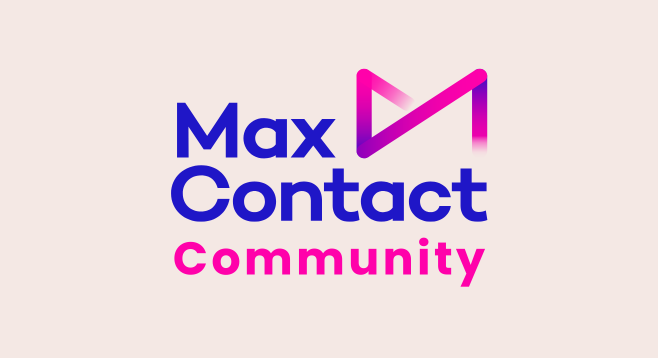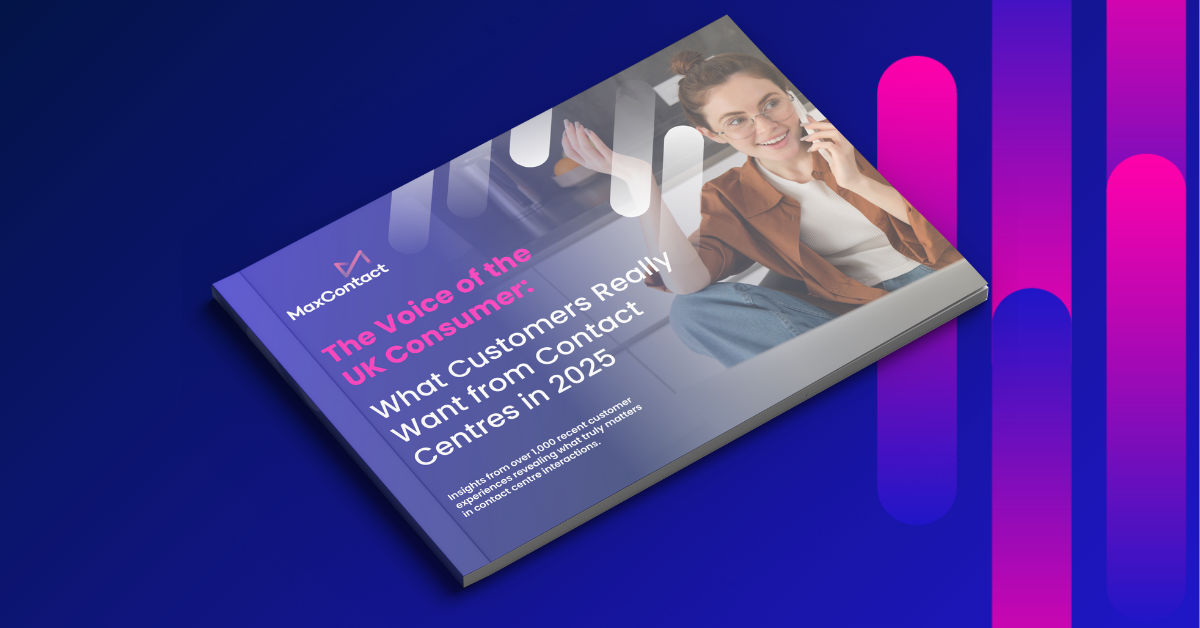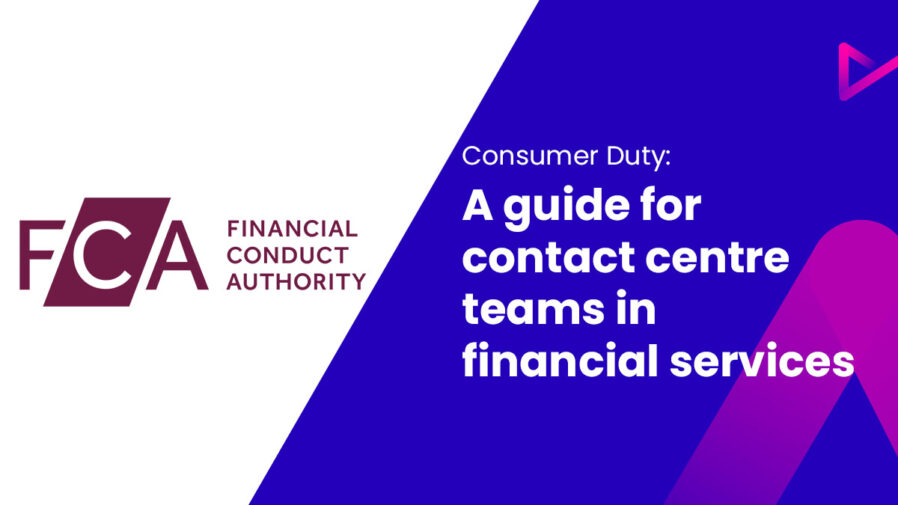Debt resolution is an important part of the job for many contact centres, but there are multiple factors at play in today’s debt experience for individuals and businesses.
The cost of living crisis, on top of the multi-faceted impact of the post-pandemic era, has put a real squeeze on both consumers and businesses. In some cases, this has meant taking on additional borrowing, along with paying bills and invoices as late as possible and making difficult choices with finances. On average, adults in the UK now hold £4,279 of unsecured debt, which means that debt recovery activity is likely to continue to rise while economic uncertainty continues.
For those contact centres involved in debt collection, managing processes so that the money can be effectively recovered, but without piling significantly more pressure on those struggling with debt, can be a fine balance to walk.
In this article, we look at the wider context of debt resolution strategies for contact centres and why they matter, how the right call centre software can improve processes and manage debtors more effectively, and how to help ensure more positive interactions for both contact centre staff and customers. Take a look at the webinar below for an expert-led discussion on how to create and execute the best contact strategies for easier debt resolution, and keep reading for more actionable tips for contact centre managers.
The Importance of Effective Debt Collection Strategies
Debt collection as a sector doesn’t always have the best reputation. If businesses and individuals that have fallen into debt feel harassed by those tasked with recovering money from them, it can add considerable stress to the situation and make for extremely fraught and negative interactions with contact centres, on all sides.
Contact centre staff can suffer if a high percentage of their customer interactions are negative and it doesn’t usually encourage customers to clear their debt any more quickly either.
A much more effective way to recover debt is to prioritise both customer and staff welfare, while implementing strategies and techniques that foster a sense of cooperation, trust, support and clarity.
Debt Collection Call Centre Techniques
Debt recovery calls to customers can often make for challenging conversations and difficult negotiations over payment plans. However, there are lots of different techniques that can be used by contact centres dealing with debt recovery to help make the process smoother and more positive for all parties. These may include:
Scripting and conversation starters
While every call and customer is unique and needs to be treated as an individual, it can sometimes help to set a positive tone for the rest of the call if the contact centre staff use a predetermined opening script to quickly and clearly explain why they are calling and the purpose of the conversation, before then tailoring the rest of the call around the customer’s responses.
Active listening
There are few things more frustrating to customers than feeling like they aren’t being listened to or heard properly. By using active listening techniques, call centre staff can help to put the customer at ease that they are being understood and taken seriously, which helps maintain full engagement in the conversation on all sides. Active listening builds trust and rapport, which increases the chances of smoother debt resolution.
Active listening methods for contact centre debt recovery teams include:
- Using affirmative responses to customer statements to illustrate they are being heard
- Repeating or paraphrasing what they are saying, to demonstrate understanding
- Asking questions when needed, to establish context in what the customer is saying and make sure that there is no ambiguity in the information being taken or given
- Using positive language to minimise stress and the chances of escalation.
Displaying empathy and validating customer feelings
Being able to put themself in a customer’s shoes is important in debt recovery calls, because customers need to know that their situation is understood and being taken into account. It can help ensure the call is constructive when call centre staff validate the customer’s opinions and emotions about the situation. This can make them more willing to find a resolution that everyone can agree on.
Transparency
Honesty and transparency are important factors on any debt recovery call, because it helps build trust and being clear about the debt is also a regulatory requirement. Some of the ways to ensure transparency include:
- Clear identification at the start of the call about the caller and what the purpose of the call is
- Accurate information about the debt owed, including any fees or interest also due
- Avoid giving any misleading or ambiguous information.
De-escalation
Some debt recovery conversations can be difficult, so being able to effectively use de-escalation techniques can be valuable skills for contact centre staff. Along with incorporating active listening, using positive language and displaying empathy for the customer’s situation, other de-escalation methods can include:
- Staying calm and composed
- Set clear boundaries for the conversation if the customer becomes aggressive or abusive
- Ask for support from a supervisor
- Offer to follow up in a separate interaction and provide a timeline for this.

Leveraging Call Centre Software for Debt Collection
Alongside the contact centre staff using a variety of techniques during their customer conversations, debt collection with call centre software that is the right match for your business can significantly increase your resolution rates.
A debt collection call centre using software that streamlines repetitive and resource-heavy processes can make all the difference to productivity and the amount of money recouped. Some of these features can include:
- Diallers – to automate the outbound call and connect with the customer without the need for manual number lookup or dialling.
- Call prioritisation – to make the most urgent and important calls first, which can help with customer satisfaction as well as being more efficient.
- Speech analytics – to identify problem areas in the customer journey so the contact centre can take steps to improve processes and performance.
- Scripting – to provide call centre staff with useful guidance to set a positive tone and achieve the best outcomes during calls.
- Secure IVR payments – to give customers a secure, encrypted way to make phone payments 24/7 without relying on contact centre staff to enter data manually.
- Quality Assurance (QA) – to evaluate contact centre call performance and enable the team to make improvements as needed.
Making the most of automation in call centre software
A great way to boost productivity in contact centres involved in debt recovery is to automate as many repetitive processes as possible. This not only frees up time for staff to focus on offering excellent personalised customer service, it can also improve morale and workplace satisfaction.
Some of the tasks and processes that can potentially include automation in debt collection call centres include:
- Communication – with tailored communications going out to individual customers automatically on a pre-planned schedule.
- Payment reminders – including emails, WhatsApp messages and texts, tailored to the payment plan put in place for each customer.
- Chatbots – to respond to common questions and send any complex requests through to staff to deal with.
Using call centre software data analytics to drive debt collection strategies forward
With built-in data collection and analysis in the best call centre software solutions, not only can the platform make the day-to-day operations run more smoothly and productively, it can also inform future debt collection strategy decisions.
By analysing data and outcomes, insights can be delivered on contact centre performance KPIs, as well as potentially predicting future behaviour and patterns of customers. This kind of information can help contact centres to future proof their debt collection strategies and maximise efficiencies.
Creating a Debt Resolution Plan
The key to maximising debt recovery is to develop an effective debt resolution plan, utilising all of the relevant functionality within your call centre software and the skills of your call centre staff, that can be easily tailored to individual customers and their circumstances and preferences.
- Step 1: Understand each customer’s individual debt and its context, including the barriers that are preventing them from clearing the debt straight away.
- Step 2: Establish the communication channels and preferences that work best for individual customers.
- Step 3: Offer flexible payment options, based on an honest discussion about the debt and circumstances.This might include out of hours payments as well as setting a schedule to pay off the debt.
- Step 4: Implement personalised communications and reminders to continue the debt recovery process after initial contact.
- Step 5: Use your data and the insights it provides to improve the service further.
With an effective debt collection call centre software solution monitoring your plan and integrating with other aspects of your business, such as your CMS, CRM, payment gateways, various communication channels and regulatory compliance, you can create a debt resolution plan that delivers better outcomes and an improved customer and staff experience, all while reducing costs.

Managing Staff Wellbeing in Debt Collection Call Centres
With an increase in the levels of debt and busier times ahead for debt collection contact centres, managing staff wellbeing is an important consideration for managers. A happy, well-supported and productive workforce means a more positive culture, lower staff turnover and lower recruitment, onboarding and training costs.
Find out the main employee stressors in your specific contact centre
You might think that you already know exactly why working in a debt collection call centre is stressful for staff, but you might be surprised by some of the things that your employees say.
Putting in place a supportive feedback process is important, to help you understand the real call centre agent experience.
Staff need to feel comfortable enough to be honest about what makes their job tough. While every contact centre is different, some common issues that cause stress may include:
- Management expectations are unclear to staff
- High customer expectations and challenging conversations are difficult to deal with repeatedly
- Striving to meet call targets
- Being measured and monitored every minute of the working day
- Feeling disconnected from the company and coworkers if working remotely
Take steps to mitigate the main causes of stress for staff
There are always going to be challenges when working with customers through a contact sector, but there are ways that call centre managers can reduce some of the stress for the workforce, such as:
- Regularly discussing work stress with teams to create an atmosphere where it’s accepted to talk about this topic
- Improving the quality of internal communications – making sure that it’s a two-way conversation.
- Ensure targets are reasonable and provide support for employees finding this a challenge
- Providing training and coaching when a need is identified
- Implementing wellbeing practices as part of the working day, such as breathing exercises, visualisation, exercise and taking breaks when needed.
Implement regular staff check-ins and wellbeing reminders
Giving contact centre staff a clear route to provide feedback about their role and wellbeing is important. Having regular check-ins can be a good way to do this, either individually or in a small group setting, depending on employee preference.
Setting up wellbeing reminders can be a great way to help staff working remotely to deal with the sense of isolation they may feel after coming off a particularly tricky call. Wellbeing reminders can regularly nudge contact centre workers to take screen breaks, have a drink, do some stretches or breathing exercises. These little things can have a significant positive impact and help employees to feel more valued and supported, as well as encouraging healthy habits that don’t cost anything.
Providing call centre workers with a straightforward way to engage in conversations with those who understand exactly what they are going through can also be a big help when working essentially alone.
Individual wellbeing solutions for your contact centre workers
It’s worth remembering that what one employee finds stressful, another might thrive on, and what reduces stress for one person might be the last thing that another worker wants. In the same way that debt collection customers need to be treated as individuals, with their own preferences, so do debt collection call centre workers.
Enabling employees to choose their preferred options for managing their own wellbeing at work is important, giving them a greater sense of ownership and providing them with what they personally need to feel supported.
For more insights into debt collection solutions, how to improve your processes and achieve easier debt resolution, tune into the full webinar session.






